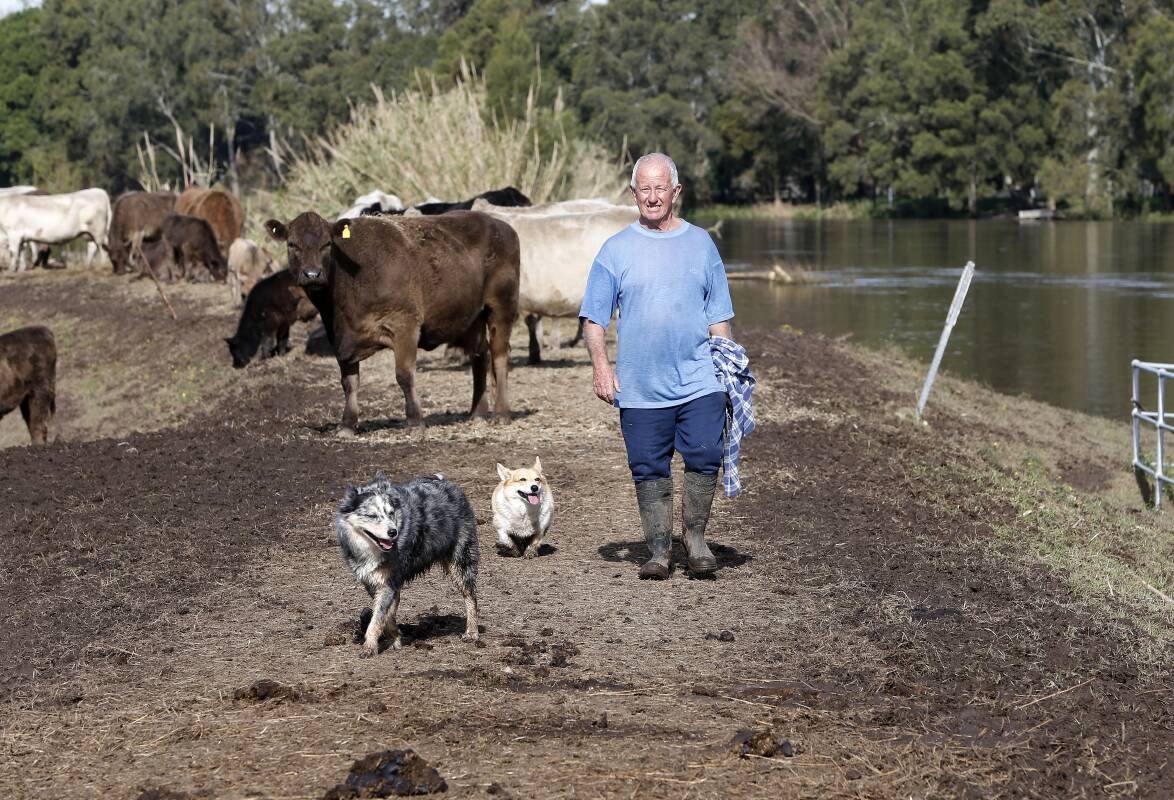
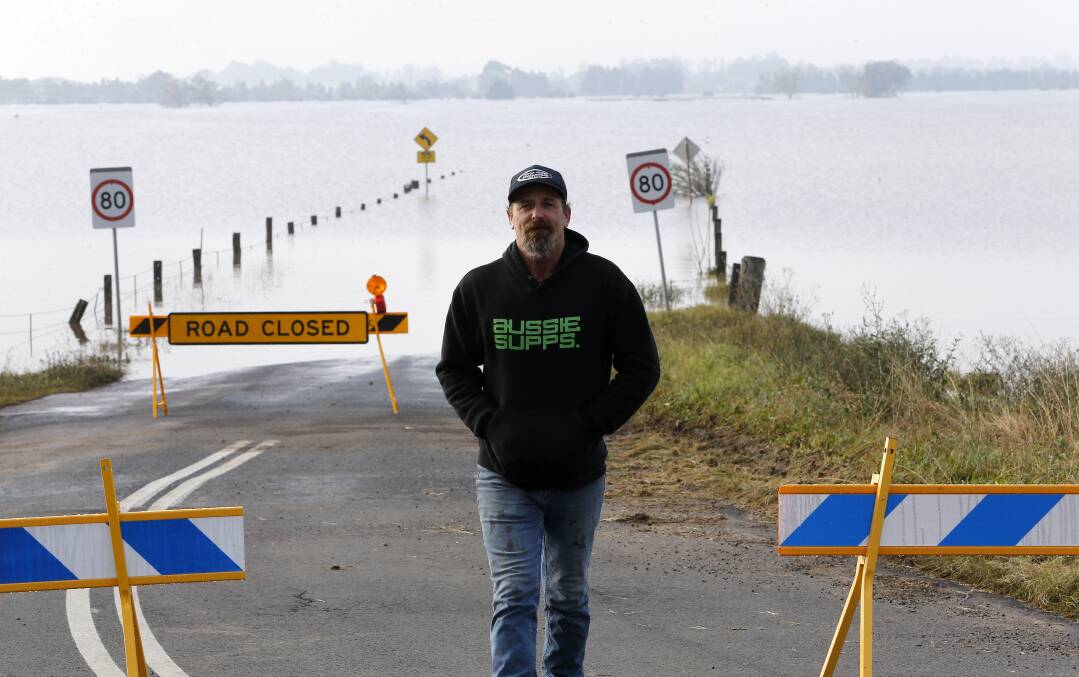
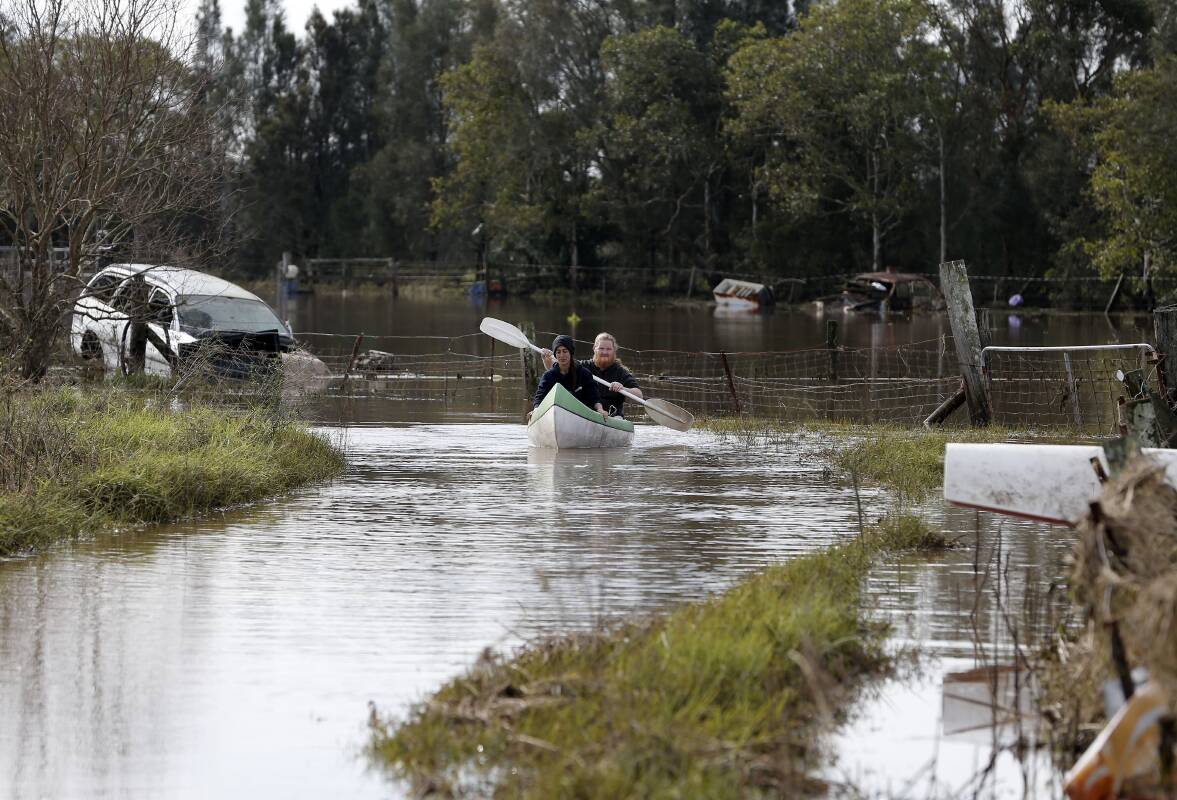
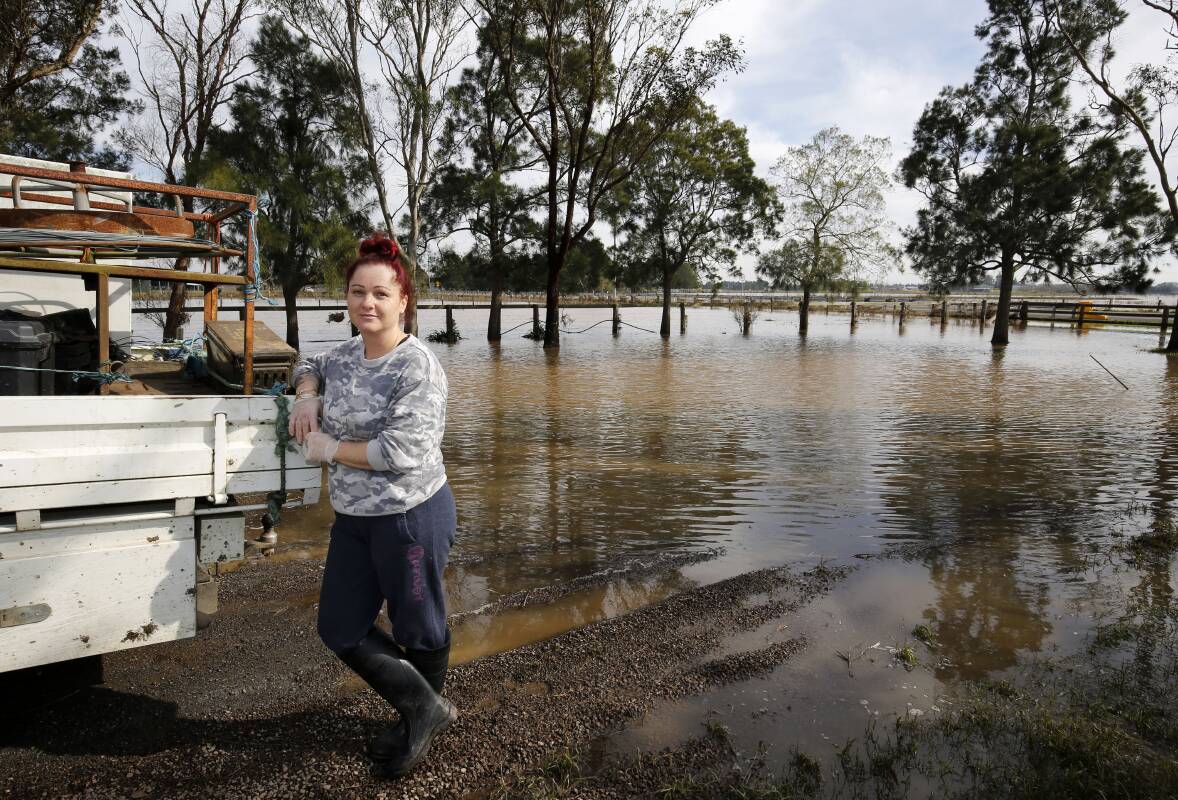
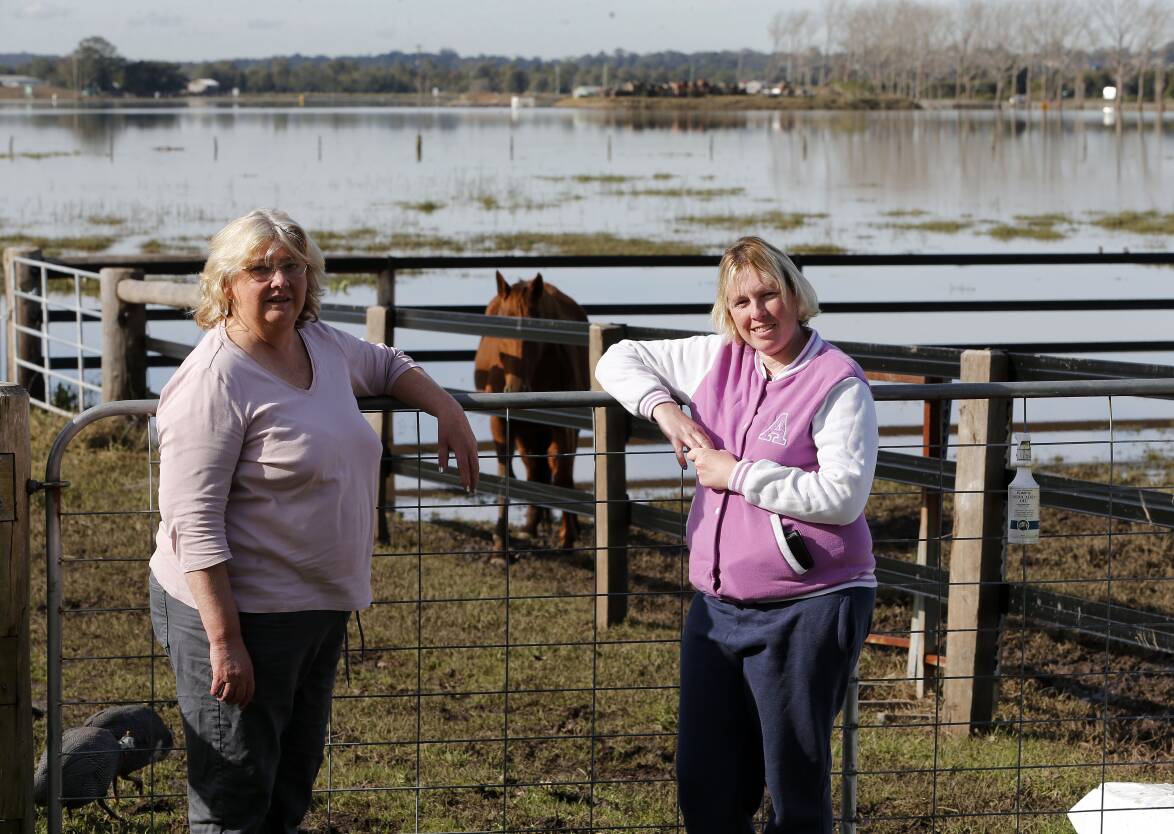
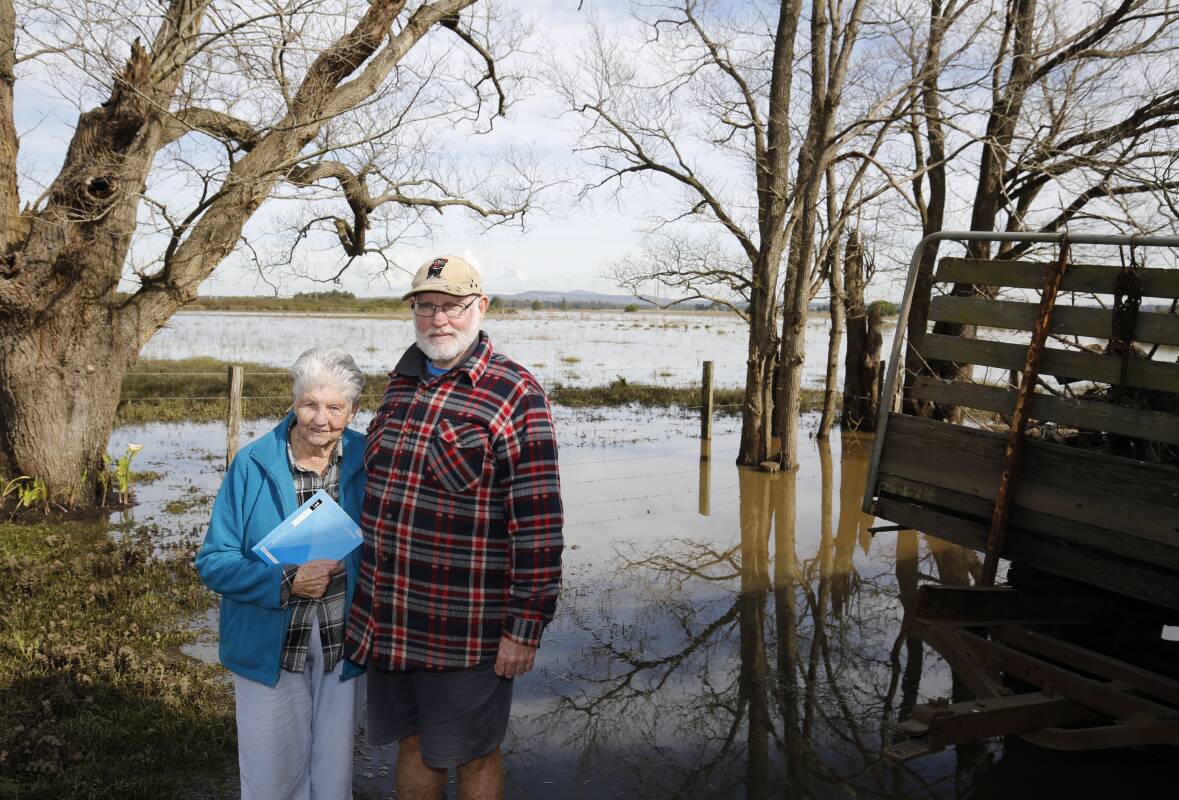
David Purdie says there were a few laughs when his boss Justin Ridley built a huge mound on land he runs his excavation business from at Duckenfield.
But that mound has been put to good use in the past week in keeping valuable equipment and more than a dozen cows dry after the property was inundated in last week's floods.
"We've been going out on the boat to feed the cows," Mr Purdie said. "One is due to give birth very soon."
But not everything could be saved from the fast rising waters.
"Justin had a HR ute ready to be restored that's gone under, all of the wedding stuff he had out there is gone, a lot of memorabilia," Mr Purdie said.
"We would have got a lot more stuff out, we weren't expecting it to be this high. It absolutely gobsmacked us. It came up really, really quick."
The rain forced the business to a grinding halt, Mr Purdie said, with equipment off-site at other locations also unable to be used because it's still too wet. He hoped he could get out to Huntlee to restart work today.
Millers Forest woman Jodie McCosker is also stuck waiting, with her driveway still underwater. Her family moved to the farm less than two months ago.
"It just didn't stop raining," she said. "They said the rivers were going to come up and they certainly did."
Her young son's room was hit the hardest and there's still no hot water almost a week after the drenching.
Ms McCosker described how the wailing cries of cattle on her farm and other animals during the battering rain was frightening in a dark house with no electricity.
At its height, the flooding of the Hunter River and its tributaries affected 40,000 people. One of those isolated was 62-year-old Joanne Daley who was distressed being unable to see her elderly father in a nursing home about 20 kilometres away.
Yesterday was the first time she was able to leave her Nelson Plains property to visit him. Many roads remained closed around Maitland - including the New England Highway - but some reopened yesterday.
"As soon as council opened up the road, we went and saw him then we got dog food and food for us because we ran out of supplies last night," Ms Daley said.
Her home was spared but she said she and her daughter were trapped for six days.
"The whole farm was a lake and the house was like an island," Ms Daley said. "We didn't suffer ... but the worst part was the isolation because you can't go anywhere. No one understands that."
After living in the area 25 years, Ms Daley said the floods had bought her tight-knit community even closer and she was committed to staying in the area.
Prime Minister Anthony Albanese said the federal and NSW governments were working together to support victims of the disaster, and more than 600,000 people affected by floods had together received in excess of $514 million in payments.
"We want to work with all states and territories when disaster strikes because we know that it's a long road back for people who are suffering through the current period," he told reporters in Sydney on Tuesday.
Premier Dominic Perrottet said an independent review of NSW's flood preparedness in February and March was due at the end of the month.
"There's no doubt these events are becoming more prevalent," he said. "A lot of (the review) will focus on the immediate response to these disasters but there's no doubt there will be a medium to long-term focus."







